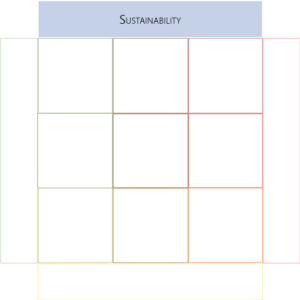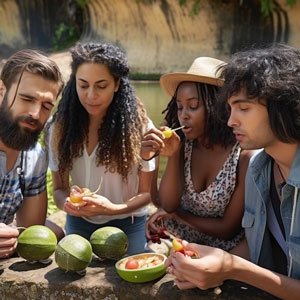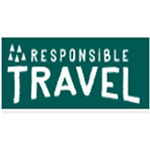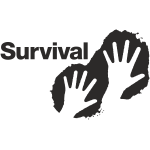
Sustainability: 18 Questions for Thriving and Fostering Responsible Tourism in a Competitive Market.

Sustainability
18 Guiding questions for small and medium-sized tourism enterprises (SMTEs) for the promotion of sustainable tourism
Key to Success
In this section, we would like to make sure that Small and Medium-sized Tourism Enterprises should be aware of the following:
- Tourism’s environmental impact, including its effects on natural resources, biodiversity, climate change, and more.
- Tourism’s social and cultural impact, including its impact on local communities, cultures, traditions…
- Tourism’s economic impact includes contributing to local economies, job creation, diversities…
Accomplishments
In this step, we’ll:
- Identify the environmental, economic, and sociocultural impacts that we promoted.
- Highlight our business benefits for society.
- Find as we can support the minor community.
Time-Saving Tools
We’ll complete all sections of this chapter more quickly if we have any of the following handy:
- The tourism destination market plan and strategic plan.
- The sustainable development plan of the tourism destination.
- Our business plan, our business objectives, and our strategic business plan.
- The tourism destination laws are driving tourism.
- The tourism destination inventory and other research.
- The trade travelers and other relevant stakeholders.
- Tourism destination demand research and an analysis of the traveler demand profile.
- Research the potential customers who live in the tourism destination.
- Research the potential customers who live 3 hours away from the tourism destination.
- 2030 Agenda for Sustainable Development
- Sustainable Development Goals (SDGs).
- Sustainable Development Goals strategies (SDG).
- Some sustainable development plan or guide aligned with SDGs.
- Research about the tourism industry.
- Another specific analysis applied to our case.
- All documents could find relevant information.

Presentation
Sustainability is no longer optional but essential for the sustainable tourism industry’s long-term viability. Travelers are increasingly demanding sustainable tourism practices, and many governments are introducing regulations to enforce them. Sustainable tourism can provide economic benefits, preserve natural resources and cultural heritage, and improve the quality of life for residents.
Small and Medium-sized Tourism Enterprises (SMTEs) need to assess their environmental, social, and economic impacts and take steps to reduce their negative impacts while increasing their positive contributions. This can involve implementing green technologies and practices, reducing waste and energy consumption, supporting local economies and communities, and preserving natural and cultural resources.
By prioritizing Sustainability, tourism enterprises can improve their reputation and traveler loyalty and contribute to a more sustainable and equitable world.
Sustainability adds value to the business when: it optimizes the usage of resources while minimizing losses, attracts travelers with a specific interest in sustainable products and services, increases the business life cycle, serves as a competitive and comparative differentiator, enriches the traveler’s experience with the knowledge that we are financing a responsible business, among many others.
As social pressure mounts and more travelers demand sustainable products and services, companies that take up the sustainability challenge will reap additional benefits.
In conclusion, by adopting sustainable practices and strategies, Small and Medium-sized Tourism Enterprises can reduce their environmental impact, minimize resource use, and enhance their social responsibility. Moreover, by aligning their practices with sustainability principles, tourism enterprises can appeal to a growing segment of responsible travelers who prioritize sustainable tourism. By doing so, they can contribute to the destination’s sustainable development while creating economic opportunities for themselves and the local community. Ultimately, understanding and prioritizing Sustainability can help tourism enterprises build a resilient and competitive business model while creating positive social and environmental impacts.
GUIDING QUESTIONS
How can the destination promote sustainable and responsible tourism practices? Implementing eco-friendly initiatives, supporting local communities, and preserving cultural heritage is essential for long-term success in the tourism industry.
YScala
A suggestion of guiding questions that are not intended to exhaust the topic:
Environmental questions.
- What positive impacts does our business have on the tourism destination?
- What are the negative impacts that our business causes on the tourism destination?
- What can our business be loading capacity (daily, weekly, monthly, quarterly, half-yearly…) within the limits of acceptable changes outlined?
- What is the origin of our water resource? What are the efficient management measures for this resource? What is the sanitary waste treatment system?
- What is the energy resource source used directly by the business? What are the efficient management measures for this resource?
- What are the limits of acceptable changes (LAC) in the environmental context that the host community could accept due to the impacts caused by our business?
Social and cultural questions.
- How can our business demonstrate the sociocultural authenticity of the host community?
- How will the service and product enhance the receiving community’s sense of place (SoP)?
- What is the impact on the cultural and architectural value of the destination?
- How is our business prepared to promote accessibility for people with special needs, such as the visually impaired, deaf, mute, and mobility impaired?
- How will our business contribute to intercultural understanding and tolerance in dealing with minorities (black people, LGBTQ+ community, women…)?
- How will our business contribute to the fight against child sexual exploitation, prostitution, and illicit drug use?
Economic questions.
- What are the economic impacts that our business should promote?
- Does our distribution network prioritize business and partnerships with other companies in the tourism destination or region as much as possible? Are our purchases of inputs, services, and supplies prioritized by other companies located in the destination or area as much as possible?
- What are the most effective methods of our business practice to improve employee relationships and provide them with stable, decent jobs? How will our business contribute to the fight against poor working conditions in tourism?
- What are our best practices in employee-employer relations?
- What is the most equitable distribution of jobs?
- What is the most significant disparity in pay between men and women? And how can we solve it? How will our business distribute jobs equally between men and women? First, generate equal income and equality in management positions.
Small and Medium-sized Tourism Enterprises (SMTEs) can build strong awareness about sustainable tourism by asking these questions and working through the answers to be aligned with sustainable goals.
Offering more information
Besides the 18 guiding questions we’ve provided to help us evaluate and improve our tourism sustainability, we’ve compiled a list of valuable resources to further our knowledge and understanding of sustainability management. Notably, these resources offer insights into best practices, sustainability, marketing, and more, catering to the needs of tourism professionals and stakeholders. Consequently, by exploring these links, you’ll be better equipped to make informed decisions and create a thriving, competitive, and sustainable destination for travelers from around the world.
1. United Nations Sustainable Development Goals – This website provides information about the 17 Sustainable Development Goals (SDGs) adopted by all United Nations Member States in 2015 and could provide readers with a broader understanding of the global sustainability agenda.
2. The Ellen MacArthur Foundation – As a leading organization promoting the circular economy, The Ellen MacArthur Foundation offers a wealth of resources and insights on sustainable business models and practices.
3. Global Reporting Initiative – For readers interested in sustainability reporting, linking to the Global Reporting Initiative’s website could provide them with information and guidance on sustainability reporting standards and practices.
4. Climate Group – As an international non-profit organization that brings together governments, businesses, and other stakeholders to address climate change, linking to the Climate Group could provide readers with insights on climate-related initiatives and projects.
5. Greenpeace – Greenpeace is an international environmental organization that works to protect the planet and promote sustainable practices. Linking to their website could provide readers with information on various environmental campaigns and initiatives.
As you conclude reading this orientation post, we’d like to invite you to explore the other insightful articles in our Business Tailor 4 Sustainable Tourism Develop Management (BT4-STDM) Tool. Furthermore, we encourage you to engage with our community, share your perspectives, and contribute to this meaningful conversation by commenting below. In doing so, your experiences and ideas can help others in their sustainable tourism development management journey.
Table of Contents
Let your like and recommend this post to improve your audience!
Share this post with friends, colleagues, or anyone else who might be interested.
Comments:
We invite you to engage with our community, share your perspectives, and contribute to this meaningful conversation by commenting below. Your experiences and ideas can help others in their sustainable tourism development management journey.










